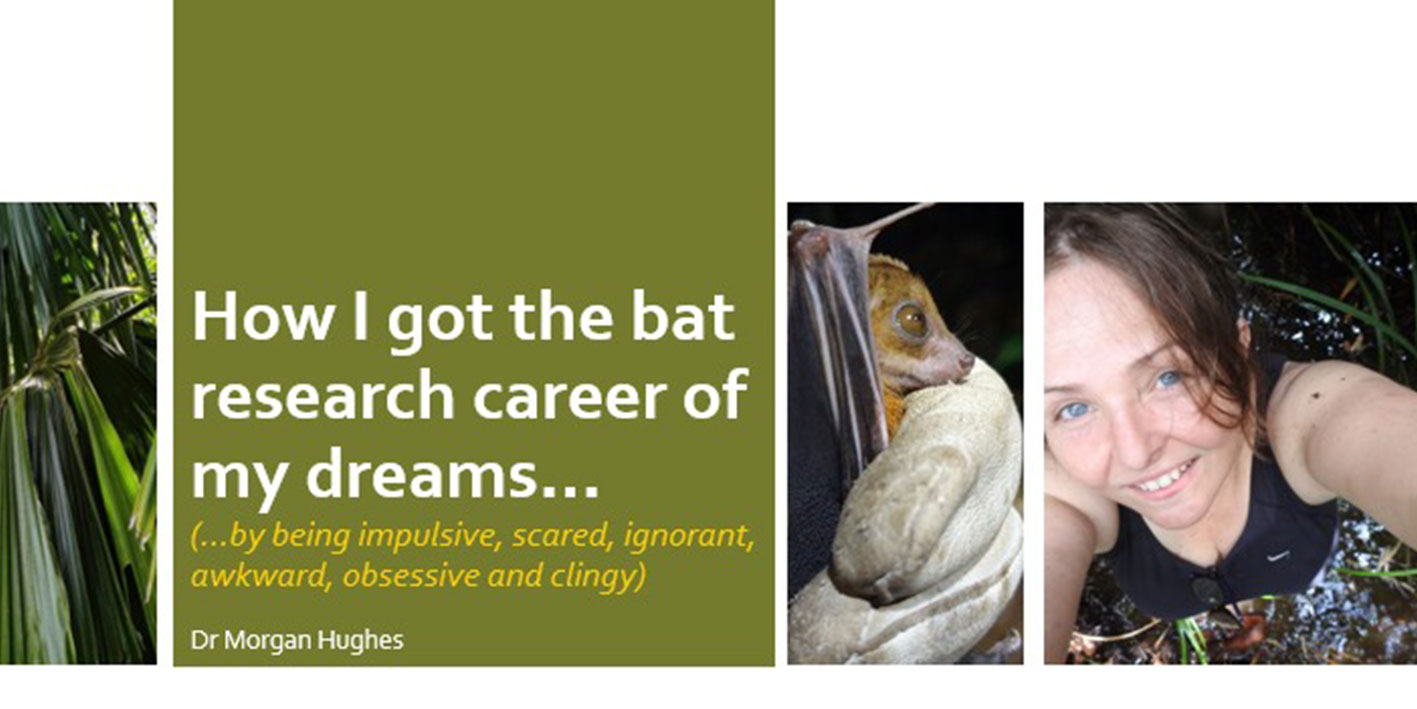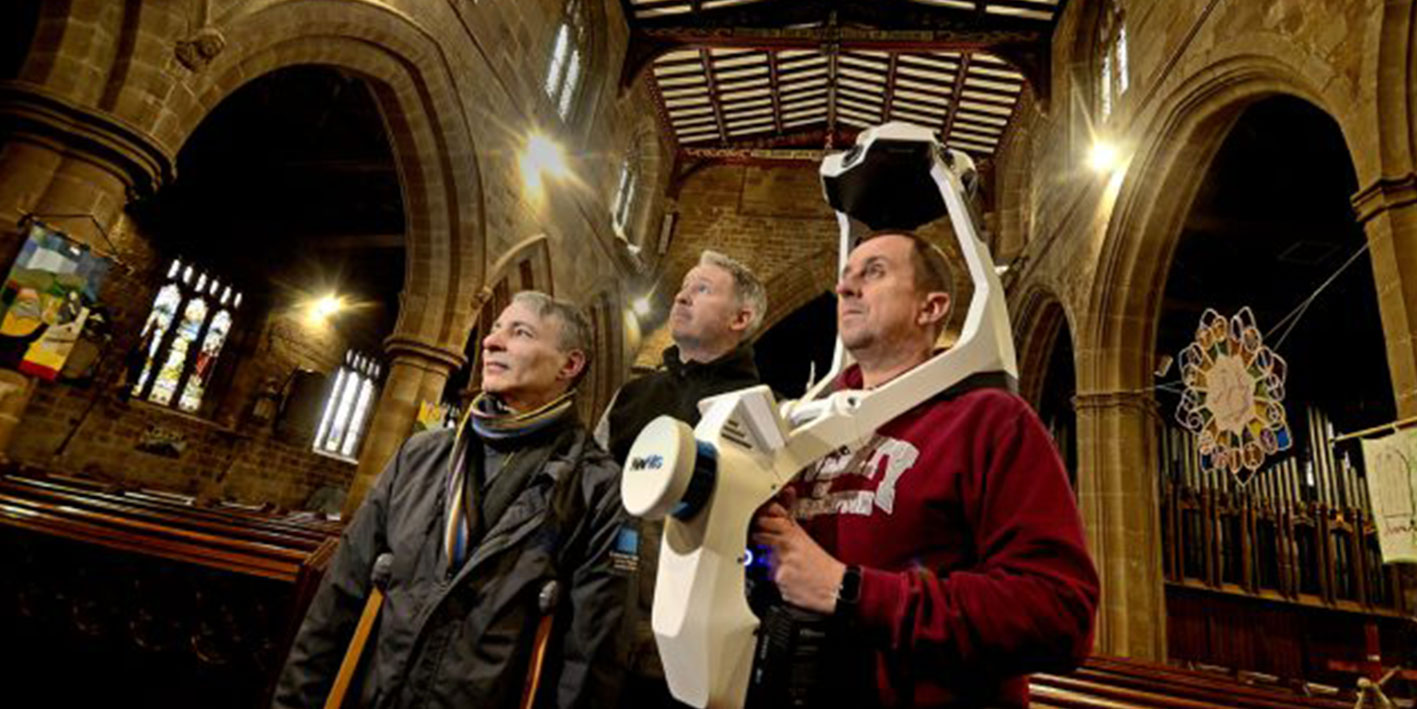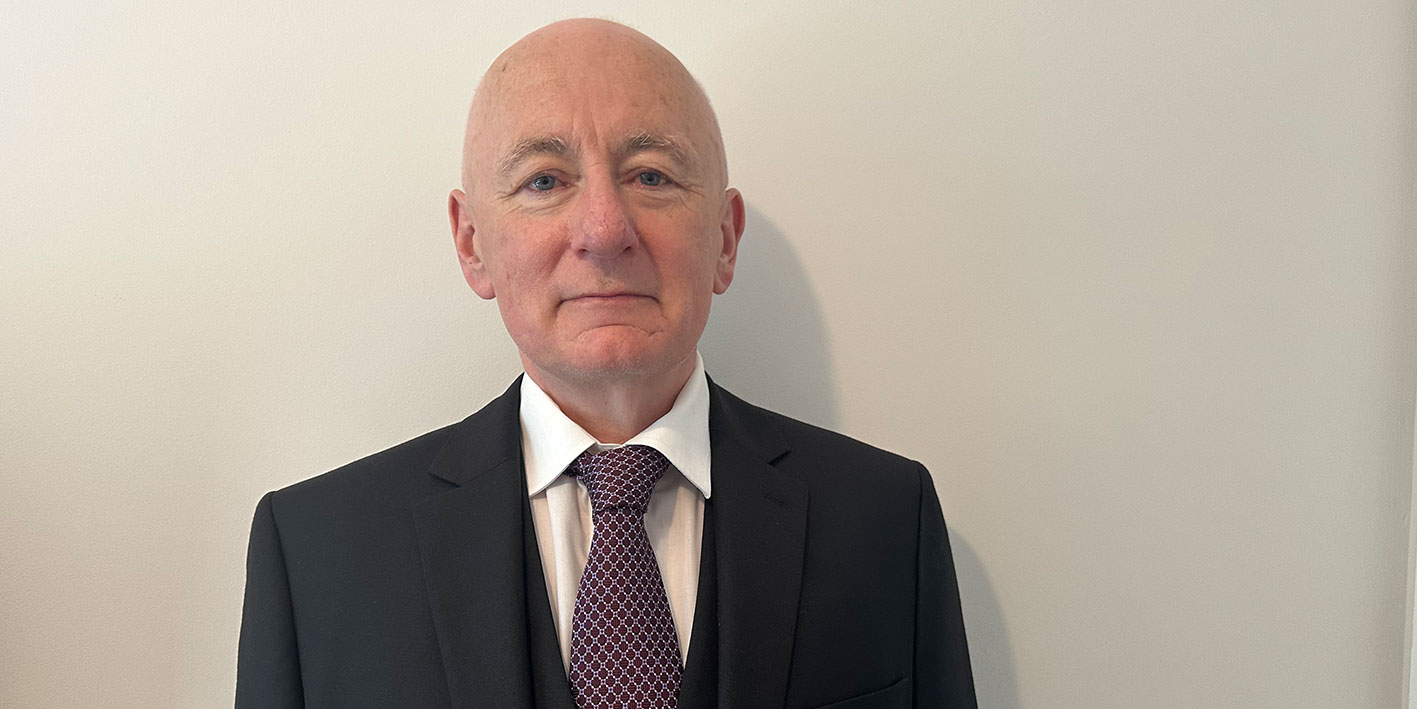
Visit examines pancreatic cancer research
The University of Wolverhampton offered visitors from Pancreatic Cancer UK the chance to examine its cancer research facilities.
University staff and students hosted the group visit which included people who had been affected by pancreatic cancer, trustees and the charity’s staff. The group were taken on an exclusive tour of the state of the art facility, where researchers demonstrated the latest technologies and techniques being employed to tackle pancreatic cancer.
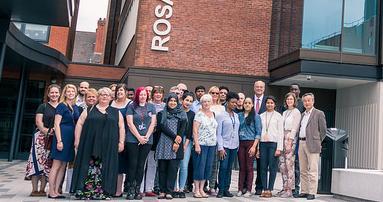
University of Wolverhampton researcher, Professor Weiguang Wang, has been awarded more than £73,000 by Pancreatic Cancer UK to investigate the effectiveness of using a treatment for alcoholism, Disulfiram, to treat pancreatic cancer.
There are currently very few treatments for the disease, and less than seven per cent of people survive for five years or more after diagnosis in the UK.
More than 800 people are diagnosed with pancreatic cancer in the West Midlands on average every year. Survival has barely improved over the past 40 years and, despite this, over the last decade only one per cent of the total UK cancer research spend has been dedicated to the disease.
Leanne Reynolds, Head of Research at Pancreatic Cancer UK, said: “It was really interesting to meet the wider team at the University and find out more about how this vital research is progressing. We are really delighted to be funding this research, which we hope will lead to a much-needed new treatment for pancreatic cancer in the future. This could have an enormous positive impact on the lives of patients in Wolverhampton, the West Midlands and far beyond.”
Professor Wang’s team is currently looking at Disulfiram, and whether it can be used to effectively treat pancreatic cancer. Disulfiram can be used to kill cancer cells, but it can only survive in the bloodstream for around four minutes.
Professor Wang said that if his team is able to develop a new delivery system which allows Disulfiram to stay in the bloodstream for longer periods of time, they could test how effective the drug is at killing pancreatic cancer cells.
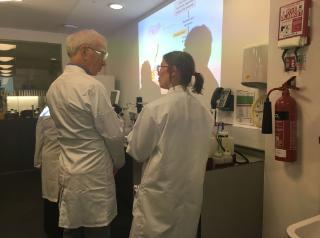
“We’re very pleased our research was chosen for funding and that we have been able to continue our work with Disulfiram and test its effectiveness in treating pancreatic cancer.
“Current treatment options for pancreatic cancer are limited, and most patients diagnosed with the disease have a poor prognosis. This is an extremely promising area of investigation and if we’re successful, could lead to new options to improve outcomes for people with pancreatic cancer,” Professor Wang said.
The grant was awarded as part of Pancreatic Cancer UK’s fourth annual Research Innovation Fund (RIF) grants scheme.
Karen Stead, a pancreatic cancer survivor, said: “I’d like to say a big thank you for the visit. What an interesting and inspiring few hours it was. There were so many passionate people working on the research, which was amazing. It was so nice that so many of them came along to meet us.”
ENDS
For more information please contact the Media Relations Office on 01902 32 2736 or 01902 518647.
Date Issued: 20th August 2017
About pancreatic cancer
- Less than 7% of people with pancreatic cancer will survive beyond 5 years in the UK. Source: ONS, full data here
- Five year survival for pancreatic cancer has improved very little since the early 1970s.
- One person dies of pancreatic cancer every hour. Around 8,800 people die every year of the disease in the UK.
- 80 per cent of people with pancreatic cancer are not diagnosed until the cancer is at an advanced stage.
- Surgery is the only treatment which could save lives, yet only 8 per cent of people with pancreatic cancer have it.
- Pancreatic cancer has the lowest survival of all the 20 common cancers.
- Around 9,600 people are diagnosed with pancreatic cancer per year in the UK. That’s 26 people every day.
- Pancreatic cancer is the fifth most common cause of cancer death in the UK
Source: Cancer Research UK
- Pancreatic cancer research has historically been underfunded. The disease attracts just 1.9 per cent of the UK cancer research budget per year.
Source: NCRI 2015/2016
About Pancreatic Cancer UK:
Pancreatic Cancer UK is taking on pancreatic cancer through research, support and campaigning to transform the future for people affected.
- We provide expert, personalised support and information via our Support Line (Freephone 0808 801 0707) and through a range of publications.
- We fund innovative research to find the breakthroughs that will change how we understand, diagnose and treat pancreatic cancer.
- We campaign for change; for better care, treatment and research, and for pancreatic cancer to have the recognition it needs.
For more information please contact the Corporate Communications Team.


/prod01/wlvacuk/media/departments/digital-content-and-communications/images-2024/240328-Varsity-Line-Up-Resized.jpg)
/prod01/wlvacuk/media/departments/digital-content-and-communications/images-18-19/220325-Engineers_teach_thumbail.jpg)
/prod01/wlvacuk/media/departments/digital-content-and-communications/images-2024/240515-Spencer-Jones-Award-Resized.jpg)
/prod01/wlvacuk/media/departments/digital-content-and-communications/images-2024/240320-Uzbekistan-Resized.jpg)
/prod01/wlvacuk/media/departments/digital-content-and-communications/images-2024/240229-The-Link-Resized.jpg)
/prod01/wlvacuk/media/departments/digital-content-and-communications/images-2024/240516-Andy-Gibson-Resized.jpg)
